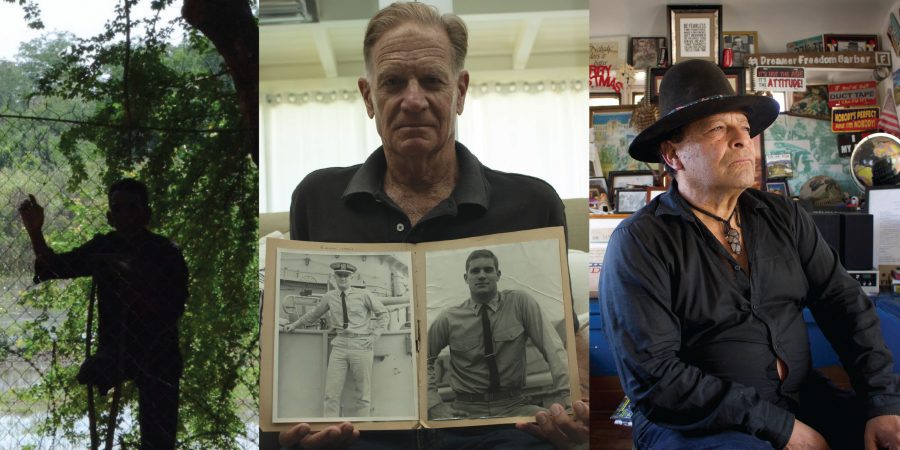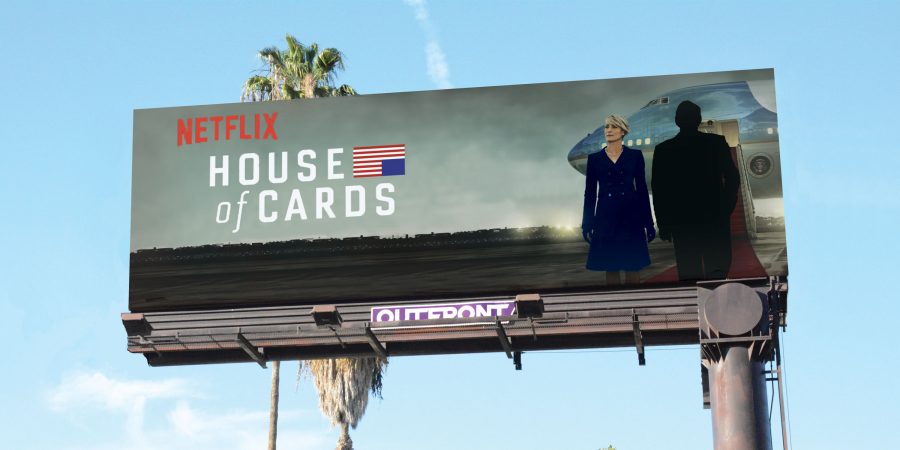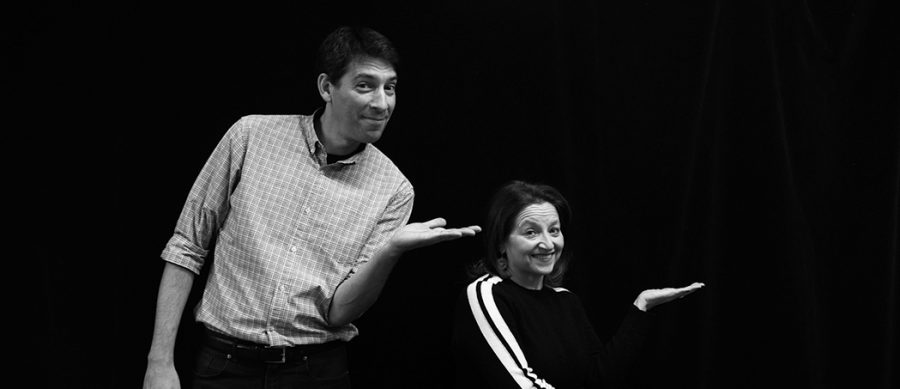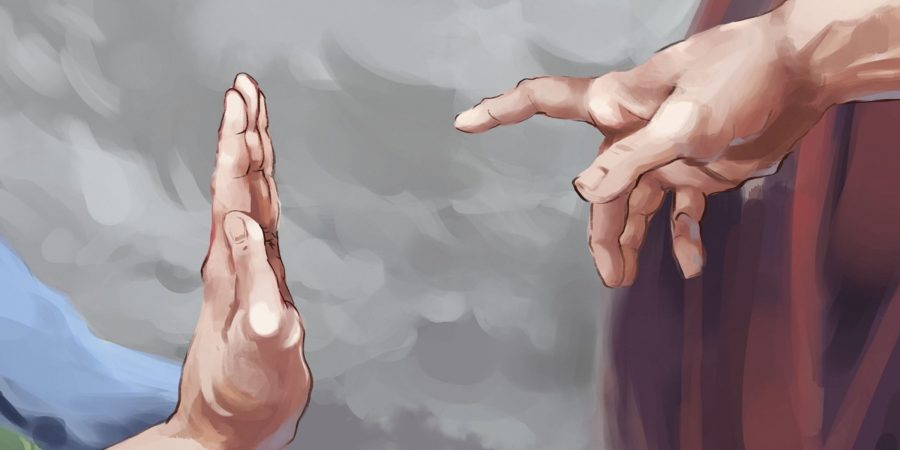Echoes of the Vietnam War lingered inside the crumbling walls of the Veterans Administration as Emma Spencer ‘18 stepped through the overgrown grass of an empty lot, camera in tow.
“It felt like I was in ‘1984,’ being watched,” Spencer said. “I felt incredibly uncomfortable and out of place.”
Her discomfort continued to grow as she stumbled across a red, white and blue trailer, converted into a barbershop. Inside, she found Dreamer, a veteran so traumatized by the psychological pain of warfare that he had convinced himself that the war had been nothing but a mass of spirits.
“As we talked, I just kept thinking, ‘Here is someone who is so damaged by warfare that [he is] unable to even admit that it happened,’” Spencer said. “[Dreamer] pretends that he is so strong and that he has figured everything out in his life, but in reality, his life kind of stopped after the war and he hasn’t figured out how to move past it.”
The overlooked struggle of many veterans like Dreamer was something Spencer aimed to highlight in her showcase, “The Vietnam War: 50 Years Later, Then and Now,” which premiered in the Feldman Horn Gallery on Jan. 22.
“I was determined to make something larger than myself to let the veterans know that they are being remembered right now,” Spencer said.
Since spring of last year, Spencer has worked to accumulate information on the war by researching its history, compiling newspaper clippings and interviewing protesters, Vietnamese soldiers and American veterans.
Spencer said that as she interviewed her subjects, she tried to evoke the emotions they felt towards the war and mirror them in her photographs.
“I tried to showcase people in their own environments now, reflecting on their time in the war,” Spencer said. “Everyone experienced it differently; that’s why some of them look prideful, some look happy [and some] look really somber.”
One of the men she photographed was her grandfather, Scott Wilson, who served as a lieutenant for the U.S. Navy during the war.
Spencer said that hearing her grandfather recall the pain and struggle of warfare served as her inspiration to push through the challenges of curating the show.
“This project easily could have just fizzled out and become a personal project that I did, but one of the motivations for making this a showcase was to show [my grandfather] that he was being recognized for what he did,” Spencer said. “Vietnam has become the forgotten war and most people pretend like it never happened. I wanted to change that.”
Her determination to educate a new generation began within the walls of the Feldman-Horn Gallery. Spencer said that showing the exhibition to the student body was especially important to her, as she hoped it would ground in reality the tragedy they had read about only in history books.
“I think it is especially important for high school kids to understand the war because most of the men we interviewed were going to Vietnam when they were graduating high school, which is about the age of the seniors now,” Spencer said. “It is crazy to have to think about what I would have done if I had been here 50 years ago and all my friends had been scared that they were going to have to go to war.”
Although the photos are no longer hanging in the gallery, Spencer said she hopes to find a more permanent home for them and continue to bring the stories of the forgotten ghosts of war back to life.
“I want the veterans and their family members to see [the show] and be reminded that people are still thinking about them and all the trouble that they went through, all the PTSD from their haunting experiences as teenagers that they have to live with for the rest of their lives,” Spencer said. “I want them to know that people are recognizing their sacrifices and that we still care.”




































